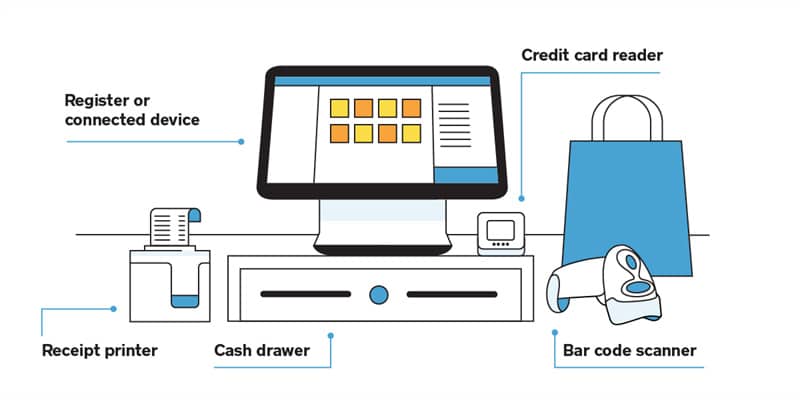
No organization can disregard the need to ensure and enhance staff productivity. As a business owner, you'll want to avoid performing the monotonous and ordinary processes as much as possible. Several external variables might harm employee enthusiasm and productivity, this is why we’ve come up with a list of 6 things your retail business needs to increase productivity and reduce errors.
1. Adopt a Responsible Attitude Toward Technology

For any firm, refusing to take advantage of technological advancements might be seen as a catastrophic error. A wide range of technological advancements can dramatically improve workplace efficiency. To highlight, it is not enough to just have laptops and Internet access in the workplace to use technology effectively. Employee productivity can be boosted by utilizing various hardware and software solutions.
Asana, for example, is an excellent tool for companies with globally dispersed workforces who want to boost productivity. In some instances, employees perform better if permitted to work from home. It may be more cost-effective or time-consuming to work from home, telecommute, or even co-work with others.
In addition, productivity is increased by increasing mobility. Communication, interactive tools, documents, and workplace information may be accessed via mobile devices. As long as the border between work and personal life isn't too blurred, it's OK. Having a good work-life balance is essential.
2. Efficiently Communicate With Your Team Members
The importance of effective communication cannot be overstated. You won't achieve your goals or function efficiently if you don't have an effective communication system in place. Here, communication is more than merely using technology like phones or exchanging information verbally and in writing.
Communication solutions tailored to the specific demands of a business or corporation are the focus here. Employees must be aware of the company's organizational structure to communicate effectively and efficiently. Those who have questions or concerns should understand who to contact.
Make use of the latest platforms and applications that are accessible to you. For example, using cloud-based workplace packages like Office 365 can help foster a more collaborative work environment.
3. POS Register Training
Set a standard quantity of money and coins for each cashier's shift and teach your staff how to check the till. Advise them to keep the cash drawer stocked during the day by requesting refills from management as needed. Also, practice ringing up different products by scanning each product's Universal Code Number (UPC) or manually typing the code into a cash register.
Help them train on cash registers. It’s also important to look into Cash Register Express reviews to gain a deeper understanding of how well it works and if it’s suitable for your business. An ideal cash register should show every product's name, number, UPC, price, and number on the register's computer screen.
Additionally, the consumer can always be taught how to use discounts and coupons before the sale is totaled and the price is disclosed. In addition, cashiers should always check the expiration date of a voucher.
4. Point-of-Sale Systems Simplifying Labor Scheduling

As long as your point of sale system contains a labor scheduling module and an associated time and attendance module, you can easily compare shop or eatery traffic patterns with staff numbers on any given day and at any given time of day.
You may use this data and software for each day’s shift to decide precisely how many retail employees or servers and culinary personnel should be assigned.
There will never be a moment when you have fewer people in-house to meet the demands of your business, and you won't have to spend money on labor that you don't have to.
5. Establish Standards and Provide Training
Establishing standards is critical in any industry. There should be a clear understanding of what the organization expects of employees. To succeed, they must be aware of their responsibilities and duties. In situations where expectations are not clearly defined, individuals, tend to look for excuses when they fail to meet their goals.
Defining expectations from the start will help everyone understand what is expected of them and how they are expected to carry out their allocated duties and activities. In addition, it provides employees with the opportunity to learn new skills or advance their careers.
It is the responsibility of management to encourage every worker to seek new challenges and avoid stagnation. To complete their present duties effectively, they need to have learned the necessary abilities.
6. Establish Specific Objectives And Give Feedback
Knowing what you're expected to do will help encourage your employees. Having a clear set of goals or a business vision helps everyone. Using short-term goals to motivate staff to complete tasks promptly is a successful strategy.
In addition, it's critical to provide staff feedback or demonstrate that they're being watched over. Finally, it’s important to recognize successes and correct mistakes as soon as they occur. Employee productivity may be boosted and maintained by suitable management methods.
Overall, increased productivity results from corporate leaders establishing reachable parameters for success that can be achieved. As a manager, you must understand what drives your employees, from setting reminders and encouraging multitasking to providing significant leisure and the right tools in the workplace.










